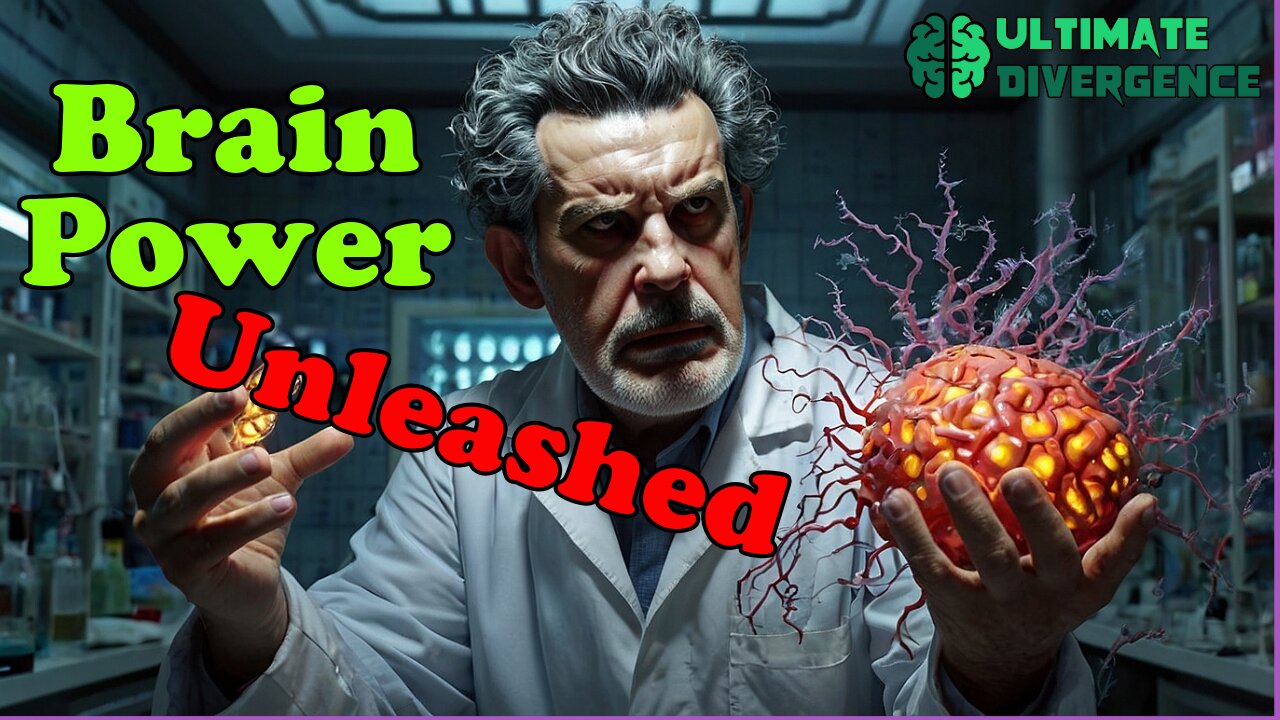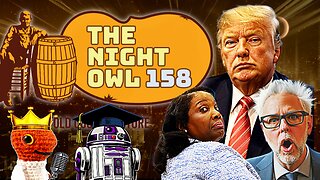Premium Only Content

What Makes YOUR Brain Neurodivergent?
Discover the intriguing question: "What makes your brain neurodivergent?" Is a neurodivergent brain predetermined by genetics, or are environmental influences at play? In this video, we delve into the complexities of the neurodivergent brain through the Ultimate Divergence Theory of Autism. This perspective challenges the traditional genetic model, proposing that traumatic memories and early experiences are powerful forces shaping neurodivergent individuals.
Join us as we explore Alvaro Pascual-Leone's piano experiment, which highlights neuroplasticity—the brain’s remarkable ability to rewire itself through mental practice. Whether it's learning a language or playing an instrument, experience molds the neurodivergent brain, showcasing the dynamic and ever-changing nature of our neural pathways.
Our journey into neurodiversity celebrates all human minds—including both neurotypical and neurodivergent individuals. For those experiencing acquired neurodivergence, whether through brain injuries or life events, the distinction between neurodivergent vs neurotypical brain becomes evident. It's not just about navigating life with a different mindset but understanding and embracing the unique neurological patterns that define neurodivergent thinking.
The Ultimate Divergence Theory of Autism offers a revolutionary view: autism as an extreme form of neural divergence primarily driven by environmental factors—not merely a genetic condition. Early adverse events may alter the ability to socialize effectively, influencing empathy development and cognitive styles. For many, these environmental impacts shape what means to be neurodivergent.
According to Simon Baron-Cohen's proposition, individuals excluded from typical socialization may develop a systemizing cognitive style, distinctively navigating their worlds through pattern recognition. This departure from conventional neurotypical information systems highlights the gifts found in a neurodivergent person.
Although autism is classified as a mental disorder, it could represent an evolutionary divergence rather than a disability, suggesting a shift towards recognizing strengths in neurodivergent adults. Acknowledging these strengths and addressing associated traumas may unlock latent potential and abilities, leading to new evolutionary paths built on individuality and innovation.
The potential in neurodivergence challenges societal norms and inspires gifted neurodivergent individuals to embrace their unique capacities, encouraging them to live fulfilling lives beyond mainstream expectations. By exploring what makes someone neurodivergent and emphasizing neurodivergent strengths, we envision a future where diversity is celebrated.
For further neurodivergent insights and to find out more about the Ultimate Divergence Autism Theory, refer to our blog post https://ultimatedivergence.com/post/the-ultimate-divergence-autism-theory-a-comprehensive-overview.
For those of you who want to learn how to dissipate the negative emotion contained within your traumatic memories check out this blog post https://ultimatedivergence.com/post/introducing-the-ultimate-divergence-navigating-autism-and-spiritual-empowerment-course.
Our Website: https://ultimatedivergence.com
Our Facebook Page: https://www.facebook.com/UltimateDivergenceEmbracingNeurodiversity/
email: admin@ultimatedivergence.com
Don’t forget to subscribe for more videos, like, and share your thoughts in the comments. Let’s continue to explore the vibrant world of neurodivergent minds and what classifies you as neurodivergent. Until next time!
-
 48:44
48:44
Ultimate Divergence
7 months agoAutism and Spirituality: Finding Balance on the Spectrum!
1.04K -
 3:16:38
3:16:38
Price of Reason
10 hours agoTrump FIRES Fed Governor Lisa Cook! Cracker Barrel CRISIS Continues! James Gunn DCU Woes! Gamescon!
93.5K7 -
 2:25:01
2:25:01
FreshandFit
5 hours agoTyreek Hill Pays Ex Wife $1 Million in Ongoing Fees From Divorce?!
26.1K3 -
 2:03:46
2:03:46
Inverted World Live
7 hours agoHaunted Dolls Hack Amazon Alexa | Ep. 98
98.9K2 -
 3:09:53
3:09:53
Laura Loomer
7 hours agoEP140: Loomer EXPOSES Islamification At US State Department
29.8K12 -
 3:05:00
3:05:00
TimcastIRL
7 hours agoTrump Floats Accepting 600,000 Chinese Student Visas, MAGA Uproar | Timcast IRL
203K140 -
 8:44:47
8:44:47
SpartakusLIVE
12 hours ago$20,000 Hide and Seek Tourney w/ Stonemountain64 || #1 Rat wins the BIG CHEESE
66.5K -
 2:34:02
2:34:02
Barry Cunningham
8 hours agoLISA COOK | ADAM SCHIFF | LETITIA JAMES | ARE THEY BEING SACRIFICED BY THE DEEP STATE?
97.1K54 -
 1:36:19
1:36:19
Flyover Conservatives
16 hours agoOnly 17% of Millennials Hit These 5 Adult Milestones—Why?; What If Childhood Trauma Is Behind Your Health Problems? - Dr. Troy Spurrill | FOC Show
37.1K4 -
 4:49:04
4:49:04
HogansAlleyHero
18 hours ago💥CHASING DOPAMINE💥✅TRUMP SAYS BATTLEFIELD IS THE BEST✅
47.7K3